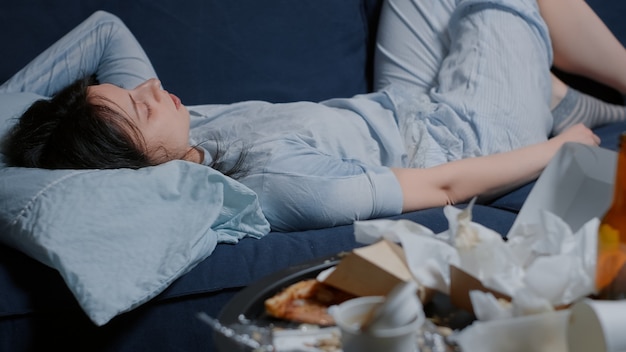
Recent research by the National Center for Biotechnology Information shows that not getting enough sleep can do more than just make you feel groggy, irritable, and unfocused. It can also mess with the hormones that control your appetite, making you want to eat more, which might lead to weight gain and obesity.
If you find yourself craving high-calorie foods after a poor night’s sleep, don’t be surprised when you grab that bag of chips instead of making a healthy meal. Your lack of sleep is actually making you want those salty snacks.
Two hormones, leptin and ghrelin, play a big role in how full you feel and how much you want to eat. Fat cells in your body release leptin, which signals to your brain that you have enough energy stored and don’t need to eat more. On the other hand, ghrelin is released by the digestive system when your energy levels are low, telling your brain that you’re hungry.
When you don’t get enough sleep, your leptin levels drop, and your ghrelin levels rise. This makes you feel hungrier and more likely to crave high-calorie foods. A recent study by the University of California, Berkeley, used functional magnetic resonance imaging (fMRI) to observe brain activity changes when people viewed different types of food after a good night’s sleep and after inadequate sleep. Participants were shown images of both healthy, low-calorie foods like fruits and vegetables, and unhealthy, high-calorie foods like doughnuts and pizza.
The study found that sleep-deprived individuals showed decreased activity in the frontal lobe, the brain area responsible for making rational decisions, when looking at unhealthy foods. Meanwhile, the amygdala, which controls reward-related behaviors and cravings for unhealthy foods, became more active. This explains why sleep-deprived people tend to choose unhealthy foods over healthier options.
Improving both the quantity and quality of your sleep can help manage your energy levels, mood, and waistline. By addressing sleep deprivation, you can reduce food cravings and support better health overall. Try these sleep strategies and see the difference they can make!